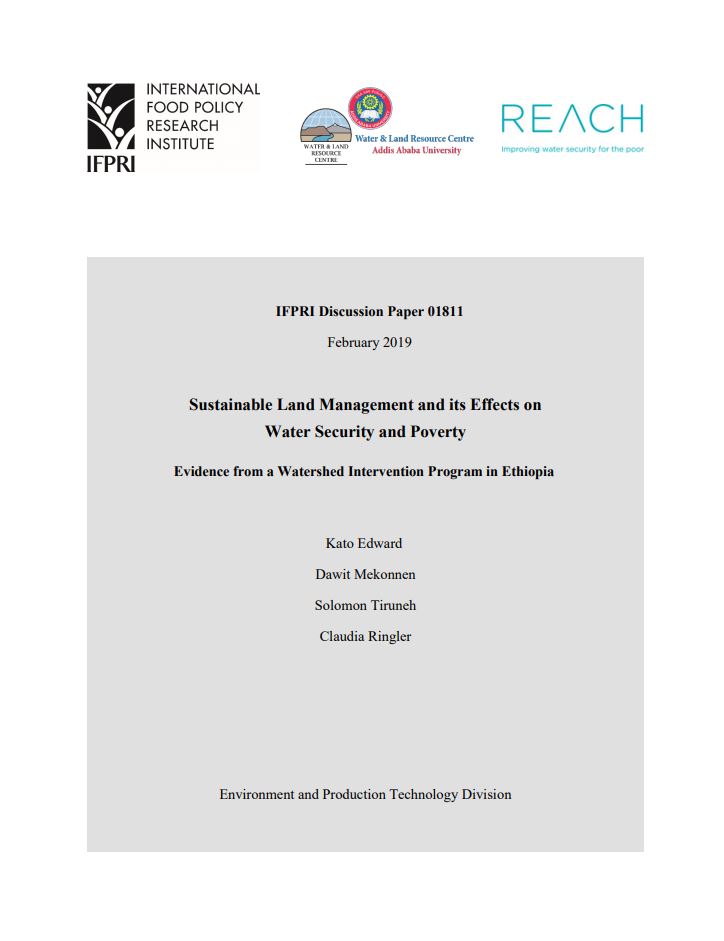This paper investigates the impacts of sustainable land management (SLM) on water security and poverty based on an evaluation of a watershed level SLM program promoted in Amhara regional state of Ethiopia. A household survey was conducted in two WLRC watersheds with SLM programming as well as complementary support and two adjacent watersheds without such programming.
Our findings show that the SLM program significantly increased plot-level adoption of SLM practices, particularly of soil bunds and stone terraces. We also find that SLM contributes to water security for both crop and livestock production. Households in SLM-supported learning watersheds have more access to groundwater for irrigation and have higher crop yields for maize, mango and millet; have experienced improving water availability for livestock production in the past five years; and have higher income from livestock products than households in control watersheds.
The positive impacts of SLM and complementary interventions on livestock income is attributed to the improved water security conditions in the learning watersheds, access to better animal forage planted along the SLM constructed structures, and animal vaccination and artificial insemination services that were part of the broader set of interventions. These findings further show that although SLM impacts were limited, the potential to improve welfare of smallholders across several livelihoods is enhanced when SLM is combined with other multifaceted complimentary interventions.

